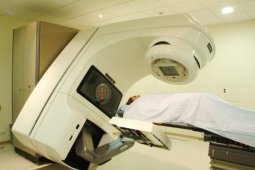Molecular Imaging of Breast Cancer
Apr 19, 2022
Breast cancer is a major cause of cancer death in women where early detection and accurate assessment of therapy response can improve clinical outcomes.
Molecular imaging, which includes PET, SPECT, MRI, and optical modalities, provides noninvasive means of detecting biological processes and molecular events in vivo.

The goal of molecular imaging is to detect and quantify biological processes at the cellular and subcellular levels in living subjects. Molecular changes in tissue and organ from functional molecular imaging can be used for comparing to traditional imaging which usually gives only anatomic information.
Advances in our ability to assay molecular processes, including gene expression, protein expression, and molecular and cellular biochemistry, have fueled advances in our understanding of breast cancer biology and have led to the identification of new treatments for patients with breast cancer.
Molecular imaging will allow clinicians to not only see where a tumor is located in the body, but also to visualize the expression and activity of specific molecules proteases and protein kinases and biological processes like apoptosis, angiogenesis, and metastasis that influence tumor behavior and/or response to therapy, molecular imaging is expected to have a major impact on this type of cancer, leading to important improvements in diagnosis, individualized treatment, and drug development, as well as our understanding of how breast cancer arises.Techniques for molecular breast cancer imaging include magnetic resonance imaging (MRI), optical imaging, and radionuclide imaging with positron emission tomography (PET) or single photon emission computed tomography (SPECT). PET and SPECT imaging which can provide sensitive serial noninvasive information of tumor characteristics.
Most clinical data on the visualization of general processes such as glucose metabolism with the PET-tracer [18F]fluorodeoxyglucose (FDG) and DNA synthesis with [18F]fluoro-L-thymidine (FLT).
High-risk women with dense breasts found that MBI was better than mammography at finding tumors in the breast. However, one drawback of MBI is that it involves a much greater dose of radiation than mammograms do. A new study compares MBI to MRI (magnetic resonance imaging), which is often the preferred tool for evaluating women who are considered high-risk and have dense breasts. MRI is more expensive than MBI and often can return false positive results, leading to unnecessary biopsies.
Carcinoma breast with average risk for breast cancer and do not have dense breasts, mammography remains the screening tool of choice for you. Many doctors believe that, for most women, mammography is better than BMI at detecting breast tumors when they are small and generally easier to treat.
MBI is still being tested, but it appears to hold promise for detecting breast cancer in women who are at higher-than-average risk for the disease and have dense breasts. When women have a lot of dense breast tissue, tumors become hard to spot on mammograms. On mammograms, fatty breast tissue looks dark, but dense tissue is light, like tumors, so it can hide any cancerous areas that may be present.









